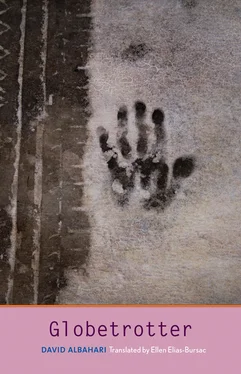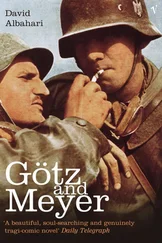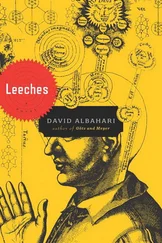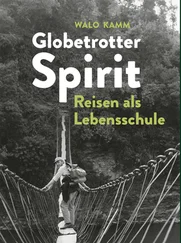This was a horrible thought, but sometimes there is no other option, and horror is all, or only, what we get. I should, it seems, have said something about that then, because it might have been more understandable to Ivan Matulić’s grandson than what Daniel Atijas was telling him. He was talking about the past, speaking of the need for forgiveness, insisting on the value of truth, but there was nothing practical in it; he was not showing a way to heal, the necessity of acknowledging defeat as the only way to move toward victory. Ivan Matulić’s grandson nodded earnestly, which, out of the corner of the eye, in passing, might appear to be a sign of genuine confirmation and rapport, a sign of readiness to embrace the words as they reached him. However, had Daniel Atijas taken a closer look, had he stopped, looked face-on at him, in the eyes, he would have seen that nothing of what he had been saying stuck, that his words were crumbling as soon as they left his lips, and that now, like a fine dust, and of this I was convinced, they were scattered on the ground behind us, coating Saint Julian Road the way leaves cover it in autumn. There is nothing so pathetic, I thought, as a speech by someone who has no faith in words. Perhaps I should have said this aloud; maybe everything would have played out differently had I done that, but I didn’t, in fact, want to get embroiled in something which, I was convinced, was in no way mine, and which, to be perfectly frank, I didn’t really understand. I remember that during one of our first walks, Daniel Atijas had told me how I should picture a civil war raging in Canada and how my country was disintegrating into noise and fury, but those images, no matter how horrible they were when I pictured them, were not authentic, they did not teach me anything, because in imagined, unlike genuine, experience, the knowledge that what is happening is not real is ever present: there is always an exit.
In real experience, I’d said, nothing helps, not dreams or illusions, not shutting one’s eyes, and that is where we left it. Daniel Atijas had dismissed this out of hand, I’d shrugged helplessly, a cloud scudded across the sky, an elk rubbed against a tree, tourists clicked their cameras. Remembering that is when it occurred to me that we had never had our picture taken, so I went over to Ivan Matulić’s grandson and Daniel Atijas and told them it would be a good idea for me to run back and get my camera, as this would be our last chance to get a picture of us together. Had I known how true this was, I probably would have chosen other words, but at the time, driven by the additional thought of the necessity of destroying all my drawings, I was thinking of the document, of the actual presence of a photograph, of something that could remain as a trace of Daniel Atijas beyond the administrative records of the visit, his lecture, and expenses, and I was therefore poised to race back to my room and even, if need be, to the studio, for I wasn’t sure where I had left my camera. But the two of them were adamant. No pictures, they said, no way. And besides, added Daniel Atijas, once a person departs, it is a bad idea to return. That confused me because he did not strike me as the type of person who would buy into such superstitions, though, I thought, if people do come to Banff to become somebody else, maybe this simply confirms the subversive power of the Rocky Mountains.
What I mean to say is that from the very start I believed Daniel Atijas to be an extremely rational person, which is why, after all, and this I knew, he could not understand the collapse of his country, which was irrational and defied all logic. It is easiest, he had said at the lecture, to refer to the inevitability of history, but history, like fate, is not inevitable; exactly like fate, it is the result of free choice. When I asked him several days later to explain what he’d meant, he refused, justifying himself with the claim that no matter what we may think of history, once it runs its course, it can never change, which means, he added, that any conversation about it is spurious, as is conversation about fate. I told him I didn’t believe in fate, at which he laughed and answered that belief doesn’t matter, because lack of belief in fate can’t touch fate itself. Fate, he added, is what happens, and since our existence is strung together of things that happen, that means that we exist only in fate, never outside it. This, it seems to me, was when we were standing by the cemetery wall, not the first time but later, when, if I’m not mistaken, we were on our way up the path leading to the Centre. Now all the days seem like a cluster of fleeting moments, but at the time they had length and fullness, and I believed they would never end. The story about fate seems fateful to me now, my disbelief notwithstanding, but isn’t that the way it always is? Future events, things that have not yet happened, always imbue the events that have passed with meaning; they become confirmations of something we could never have predicted but which afterward, after the events that are their consequence, seems crystal clear.
And that is probably what Daniel Atijas had been meaning to say at one point: the collapse of his country now can and must be seen as the culmination of a series of givens, and history from here on will always be interpreted that way, but each of these givens was preceded by a moment in which someone made a choice which led inexorably to that outcome. In short, whether deliberately or otherwise, fate did not allow us to have our picture taken. We proceeded along Saint Julian Road, one behind the other, in a row, as if we were already on the mountain trail. Ivan Matulić’s grandson led the way, Daniel Atijas was behind him, and I was last. Occasionally a car would pass us, and we met cyclists in black shorts wearing red helmets. I spotted a squirrel but didn’t mention it. I wanted to reach the beginning of the trail as soon as possible, in hopes, I guess, that the feeling of there being a goal, even if it was the summit of the mountain, would be welcome for all of us, especially me. Daniel Atijas had meanwhile taken his guidebook out of his pocket again, and in a solemn voice he announced that now we were at an elevation of over thirty-nine hundred feet, and that when we reached the highest point of our climb we would be at nearly fifty-one hundred feet. Nothing special, I told him, compared to the other peaks in the Rocky Mountains, but quite enough for us. Ivan Matulić’s grandson replied that as far as he was concerned, he would gladly stop at the spot where we were standing just then, sit down, and stay there, perfectly still. Daniel Atijas couldn’t believe, he said, that we were so willing to give up on a climb that would, as happened every time we neared the sky, bring with it a spiritual upsurge, an ascent into the divine sphere, and cohesion to the soul.
Especially as far as I was concerned, he said, turning to look at me, that should be clear, since I came from the plains. We were just reaching a parking lot, where Ivan Matulić’s grandson was the first to catch sight of the sign marking the beginning of the trail, and actually I found this welcome, because as it was, I couldn’t have come up with a reply to Daniel Atijas’s comment. The plains are stifling, on this he and I had agreed long ago, but I was not prepared to embrace the claim without reservation that every ascent of a body implies an ascent of the spirit, that he who lives on a mountain is moving at the same time on spiritual elevations which are inaccessible to people on the plains. Perhaps none of that matters, I thought, especially after my failed attempts yesterday to interpose the face I had been carrying inside me on the face that was standing before me. Daniel Atijas proposed that we wait for a group of walkers who were at the corner of the parking lot to get ahead because he would like, he said, for us to have our peace and quiet while we climbed. Once we set out, he said, we would need to follow our own pace and shouldn’t have to adapt to the hurrying or slowing of the group hiking ahead of us. Ivan Matulić’s grandson opened his backpack, took out his water bottle, and had a few sips. Then he wiped his mouth with his upper arm and put the bottle back in the pack. The voices of the hikers could no longer be heard, but Daniel Atijas still gave no sign for us to begin. Clouds were moving across the sky, so we were sometimes covered by a pale shadow, though we could feel the warmth of the sun’s rays more often.
Читать дальше







![David Jagusson - Fesselspiele mit Meister David [Hardcore BDSM]](/books/486693/david-jagusson-fesselspiele-mit-meister-david-har-thumb.webp)




